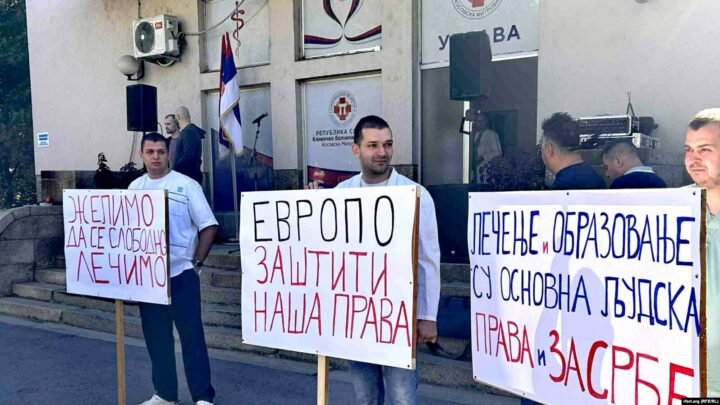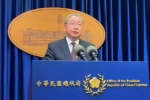On Friday, healthcare workers held a protest in front of the Clinical Center in North Mitrovica, following a police raid the previous night triggered by a tip about possible weapons. The Kosovo Police later reported that nothing suspicious was found.
Zlatan Elek, Director of the Clinical Center and head of the Serb List, stated during the protest that police had entered their facilities, including the Family Medicine Center in North Mitrovica, and harassed security personnel by requesting identification documents and information about the number of staff.
Elek emphasized that there will be no integration of Serbia’s healthcare and education systems into Kosovo’s system, noting that no international agreements between Pristina and Belgrade provide for such a move. He urged staff—who carried signs reading “Hands off the hospital,” “Europe, protect our rights,” and “Healthcare and education are fundamental human rights”—to remain calm.
“We have nowhere else to go; this is our home, and our duty is to stay with our patients. This is a message to international institutions that these are red lines that have been guaranteed not to be crossed,” Elek said.
He called on EULEX and KFOR to deploy personnel in all healthcare and educational institutions to ensure protection.
Healthcare institutions in Serbian-majority areas of Kosovo operate according to Serbia’s system. Beyond education, these institutions are considered by both the local Serb population and the Serbian government as pillars of community survival in Kosovo.
On 18 September, Kosovo’s acting Prime Minister Albin Kurti stated that the dual system of education and healthcare is unsustainable and should be integrated into a single system, with consultations involving the Serb community and international partners including the EU, QUINT countries, and KFOR.
The Serb List responded by emphasizing that any threats of integrating healthcare and education into Kosovo’s system are not part of any negotiation or agreement, describing these institutions as “pillars of survival for the Serb people”.
Meanwhile, Serbia’s Office for Kosovo dismissed Kurti’s statements as “fabrications and falsehoods”, calling them “insults to every Serb”.
The debate on integrating Serbian healthcare and educational institutions into Kosovo’s system resurfaced after Anu Prattipati, Chargé d’Affaires at the U.S. Embassy in Pristina, stated on 4 September that such a process should eventually occur, but only in consultation with the Serb community.
Nenad Rašić, Member of Kosovo’s Assembly and acting minister, told Radio Free Europe that integration of Serbian institutions is inevitable, but he does not expect the issue to be addressed this year.







